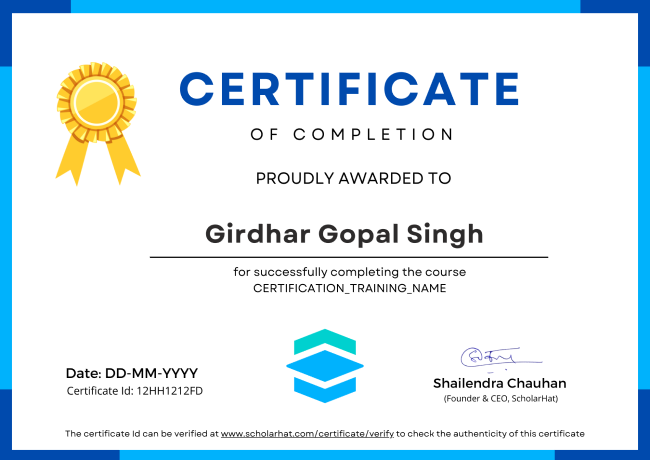
Ready to improve your coding skills? Our Free Data Structures & Algorithms Certification Course is useful for anyone wanting to learn the fundamentals of DSA. Whether you're a beginner or looking to improve your skills, we'll take you through fundamental concepts like arrays, linked lists, stacks, queues, and more complex topics like trees and graphs.
You'll also learn about important sorting, searching, and dynamic programming methods, as well as how to use Big-O Notation to optimize your code. By the end, you'll be confident in tackling problems efficiently and prepared for coding interviews or competitions.
In addition, you will receive a Certification to show your DSA skills & stand out in the tech industry. Ready to start? This course is aimed at advancing your coding skills!
Course Features: Free Data Structures & Algorithms Certification Course

After joining the Full Stack .NET Developer Training, I enhanced my professional skills with the current technology in the market. The trainer has very rich technical knowledge and is very professional. He answered all the queries raised during the training. ScholarHat Faculty organized the online course very well. The online This was the best online course I have ever attended. After completion of each course, they are updating the online recorded videos & PPT materials available to us on the same day. I recommend this course to anyone who wants to become a master in .NET in a short span of time.
I am working on a support project. Getting very little chance to enhance and develop the skill so I was losing my confidence in development. Later I joined the scholar hat program and started learning things which not only improved my skill but also helped me to clear the concepts which I was not aware of in my 13 years of career. I could improvise my understanding of my concept. The one-year membership and extension along with the freedom of repeating classes as per ur convenience is really helpful. Thanks for scholarhat for growing my skill and confidence.
This is nice learning developer site. It helped me to become more prepared and more confident in my interviews. I purchased C# interview questions and answers book is really helpful to learn a new feature. I found it online after my first interview so it has been very beneficial in preparing for the second interview. Thanks, ScholarHat!!
The e-books that I purchased .NET Framework Interview Questions and Answers and C# Interview Questions and Answers also, Entity Framwork6.x Question answer helped a lot in clearing the doubts and much knowledge in Interview questions preparation. The content is very Good and Excellent..it is quiet simple and easy to learn all topics at one place and also understandable in a really short time to crack any interview. Thank you ScholarHat ..
After joining ScholarHat live training program, got so much clarity for choosing my career path, managing my time, and the live classes were very helpful for upgrading my .NET skills. I'm confident now and soon I will report my victory. Thankyou ScholarHat by DotNetTricks.